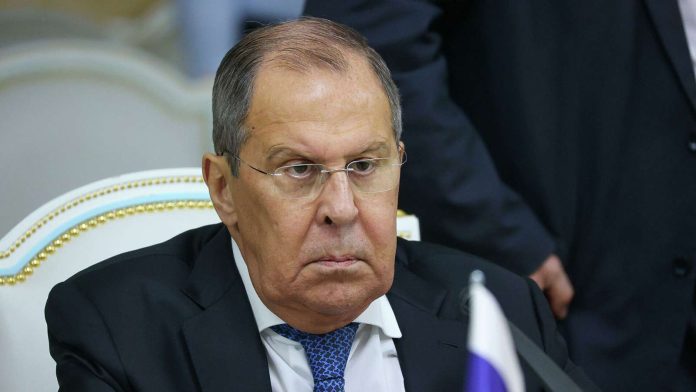Міністр закордонних справ Російської Федерації Сергій Лавров в інтерв’ю для Newsweek, опублікованому 7 жовтня, заявив, що Кремль має «життєздатний план» для завершення війни в Україні. За його словами, цей план націлений на політико-дипломатичне врегулювання, яке має усунути «першопричини кризи», та передбачає серйозні територіальні поступки з боку Києва.
Лавров стверджує, що саме НАТО стало причиною конфлікту, посіявши насіння війни ще десять років тому. На думку російського дипломата, Захід продовжує розпалювати вогонь, не бажаючи знайти мирне рішення.
«Росія відкрита до політико-дипломатичного врегулювання, яке має усунути першопричини кризи. Це має бути не просто припинення вогню, а справжнє завершення конфлікту», – підкреслив Лавров.
За словами очільника російського МЗС, план передбачає, що Україна повинна буде зробити ряд поступок, включаючи території Донецької, Луганської, Запорізької та Херсонської областей, а також Криму. Від України вимагається відмовитися від намірів вступити до НАТО, провести «демілітаризацію та денацифікацію», а також скасувати усі санкції проти Росії.
Лавров також заявив, що західні країни повинні припинити постачання зброї Україні, а Київ зобов’язаний зупинити бойові дії. Крім того, він наполягав на поверненні України до нейтрального, позаблокового та без’ядерного статусу, а також на захисті російської мови та прав російськомовних громадян.
Згідно з заявами Лаврова, відновлення миру наразі не є пріоритетом для України. Він зазначив, що президент Володимир Зеленський заборонив переговори з Москвою, і наразі рішення про їх відновлення не скасоване.
Крім того, Лавров висловив занепокоєння щодо можливих дальнобійних ударів Заходу по території Росії, назвавши цю «гру з вогнем» небезпечною.
На завершення свого виступу Лавров зауважив, що світ переживає «багатополярний момент». Він наголосив на переході до багатополярного світового порядку, який, на його думку, є закономірним наслідком змін у світовій економіці та геополітиці. За словами міністра, Захід вже починає усвідомлювати незворотність цього процесу.


